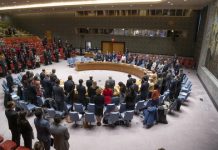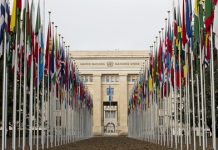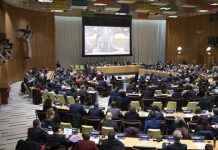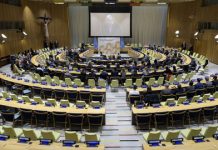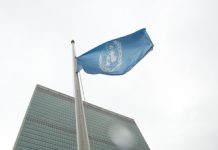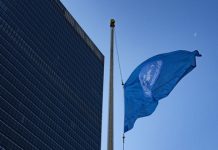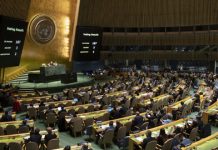“These ongoing attacks on critical infrastructure are putting lives at risk, worsening the humanitarian crisis, and violating basic human rights,” said Radhouane Nouicer, the designated expert on the human rights situation in Sudan, appointed by UN rights office OHCHR.
Targeted sites include the city’s main electricity substation and fuel and gas storage facilities, leading to widespread power cuts and restricted access to food, water and healthcare. Some strikes have hit densely populated areas, displacing residents.
“It is devastating to see the continued destruction of infrastructure and social services in Sudan,” Mr Nouicer added.
Once a lifeline, now a target
Since civil war erupted in April 2023, Port Sudan has served as a vital entry point for humanitarian aid. The conflict has killed over 18,000 people, displaced 13 million, and left 30.4 million in need of assistance.
That lifeline has come under threat. A drone strike on the Port Sudan airport forced the UN to temporarily suspend aid flights and the movement of humanitarian personnel.
Guterres calls for coordinated action
At the League of Arab States Summit in Iraq over the weekend, UN Secretary-General António Guterres called for renewed international engagement to end the violence in Sudan.
“Multilateral efforts are urgently needed to stop the appalling violence, famine and mass displacement,” he said.
The UN chief also met with the African Union and Arab League leadership to discuss ways to ensure unhindered humanitarian access and work towards a “durable, comprehensive ceasefire.”
Escalating attacks
Port Sudan is not alone. Similar strikes have been reported in North River Nile and White Nile states, where power stations have allegedly been targeted by the Rapid Support Forces (RSF) militia, which has been battling Government troops during a brutal civil war for control of Sudan.
Mr Nouicer called these attacks a “major escalation” with “alarming implications” for civilian protection.
He urged all parties to stop targeting civilian sites, in line with international law.
“Civilian infrastructure is protected under international law and must never be a target,” he said.
Source of original article: United Nations (news.un.org). Photo credit: UN. The content of this article does not necessarily reflect the views or opinion of Global Diaspora News (www.GlobalDiasporaNews.com).
To submit your press release: (https://www.GlobalDiasporaNews.com/pr).
To advertise on Global Diaspora News: (www.GlobalDiasporaNews.com/ads).
Sign up to Global Diaspora News newsletter (https://www.GlobalDiasporaNews.com/newsletter/) to start receiving updates and opportunities directly in your email inbox for free.



